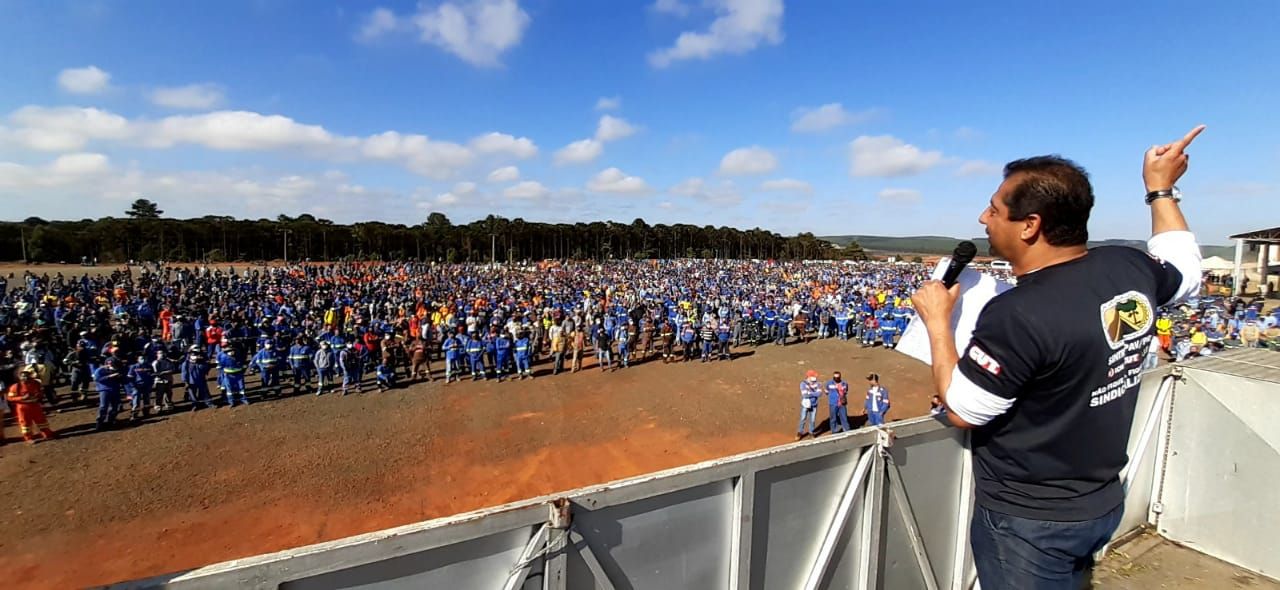Unions maximise social dialogue vs. COVID-19
 (File Photo: Kablin SA workers at the PUMA II project in Brazil)
(File Photo: Kablin SA workers at the PUMA II project in Brazil)
Trade unionists from Faber-Castell and Klabin SA in Brazil on 21 September discussed the merits of social dialogue between trade unions and employers to promote common interests, especially in the time of COVID-19.
In an online conference titled “Social Dialogue and Sustainability in times of COVID-19,” sixty-five (65) participants shared thoughts and experiences on how trade union-management social dialogue helped them respond better to the pandemic.
Joao Francisco Andrade of the BWI-affiliated SITICOMP de Prata made an example of their constructive social dialogue with their management, which he said resulted in the implementation of strict COVID-19 protocols to protect workers at workplaces. “These protocols were always the result of consultations with the workers,” he said.
This was affirmed by AW Faber-Castell (Brazil) Human Resources Manage Miguel Feres who said that their company’s success in increasing the number of workers being hired and reducing COVID-19 infections, work-related deaths, and job losses were the products of recognising the importance of forging healthy partnerships with trade unions. "These were possible because of permanent social dialogue between management and unions,” he remarked.
The Coordinator of the Faber-Castell International Trade Union Network, which groups unions in Brazil and Peru, Flavio Moraes, highlighted company's dialogue with the union in detail.
Klabin SA’s social dialogue and consultations with workers were also highlighted. Klabin SA People and Project Manager Sales Roberto de Souza Bueno explained how his company’s social dialogue and consultations with workers reduced risks and unnecessary conflict in the PUMA II project, which he estimated will employ as many as 11,000 workers during the height of its construction.
Sales Bueno presented the company’s social dialogue policy not only for the construction of the project itself, but also in the contracting of services, purchase of materials and food, accommodation, transportation, social life and security. According to Bueno, preventing labor disputes is an investment, not a cost. He said that in the PUMA II project, its project management model includes social dialogue, prior consultations and negotiations with representative union organisations from the very first stage of the project.
However, trade unions reminded the participants that social dialogue is not recognised by all companies. They pointed to their experiences in AW Faber-Castell Peru and the non-existent communication in Colombia. They said that workers must press forward their demand to institutionalise trade union-management dialogue.
Raimundo Ribeiro Santos Filho and Celso Domíngues Lopes, trade unionists representing SINTRAPAV-PR and STICM Telêmaco Borba, Brazil respectively—with whom Klabin SA has a CBA with, also stressed that social dialogue doesn’t mean the absence of differences and challenges between workers and companies. They said that while there are differences and challenges, they try to look at the bigger picture regarding the prevention of work-related accidents and COVID-19 infections.
